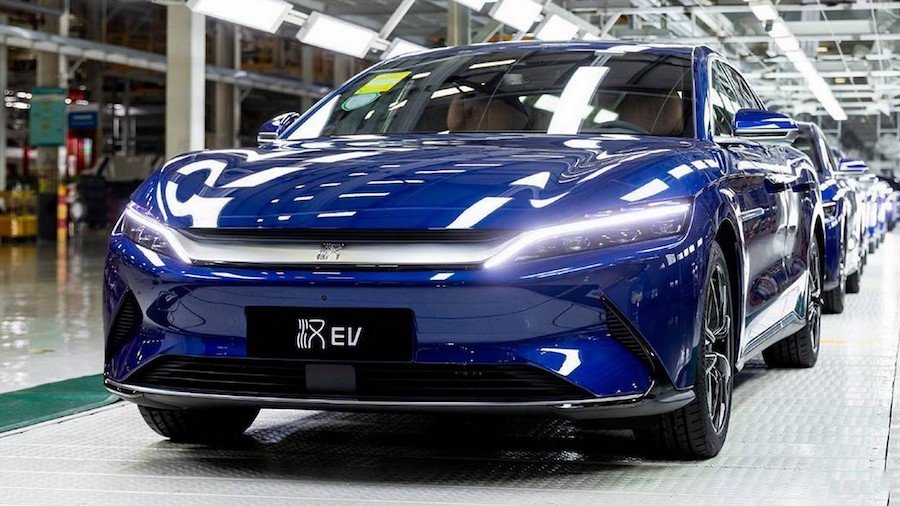One of the Factories Coveted by BYD in Europe May Come From Ford

Ironically, BYD has done that much earlier and needs new factories to expand production. According to the Wall Street Journal (WSJ), the plant that makes the Ford Focus in Germany is among its targets.
That would make it the second Ford factory that ends up in BYD’s hands. The Chinese automaker reportedly bought the Camaçari industrial complex in Brazil. The former governor of Bahia was supposed to announce the deal in December, but that still did not happen. Rui Costa left the state government when his term finished and is now the chief of staff of the Brazilian Presidency. He managed to elect his candidate in Bahia for governor. If BYD waited to see who would win the elections, that is now solved.
In Germany, the factory that BYD may purchase is in Saarlouis. Ford announced it would end production there in 2025, leaving about 4,600 employees without jobs. The American automaker would have told union leaders that 700 of them would remain in the plant producing components. If BYD buys the plant, it should keep all these workers there, either making electric cars or their batteries.
WSJ said the discussions are still in the preliminary stage. Ford would have 15 other companies interested in that factory. Anyway, the American newspaper noted that Ford executives are planning to travel to China next week to discuss the potential sale with BYD. We suspect they will meet other Chinese automakers with similar plans: most of these 15 interested parties must come from that country.
Ford will only sell some factories in Europe – not stopping car production there for good, as it did in Brazil and India. That said, it will make its electric vehicles in the Old Continent in its main factory in Germany (Cologne) and also in Valencia, Spain.
Legacy automakers face a massive problem with idle capacity in many countries. Closing factories can become a political issue, especially if the plants to be closed are in the countries where the headquarters of these automakers are. In Ford’s case, the manufacturing operations in Brazil and India frequently reported losses. Even without the electrification push, the American automaker had considered closing its factories there for ages.
The supreme irony of these factory sales is that Ford may escape political and union controversies, but it is also helping its competitors establish in markets where it still has ambitions. We would not be surprised if BYD eventually outsold Ford in Europe with vehicles made in its former Saarlouis plant.
BYD said it was considering having more than one factory in Europe. It is even developing a station wagon and a convertible, car bodies that are rather popular in the Old Continent. If Ford only stops its German plant in 2025, the Chinese automaker may find it easier to just build its new plant there from scratch. Next week should be crucial for both companies.
Related News
